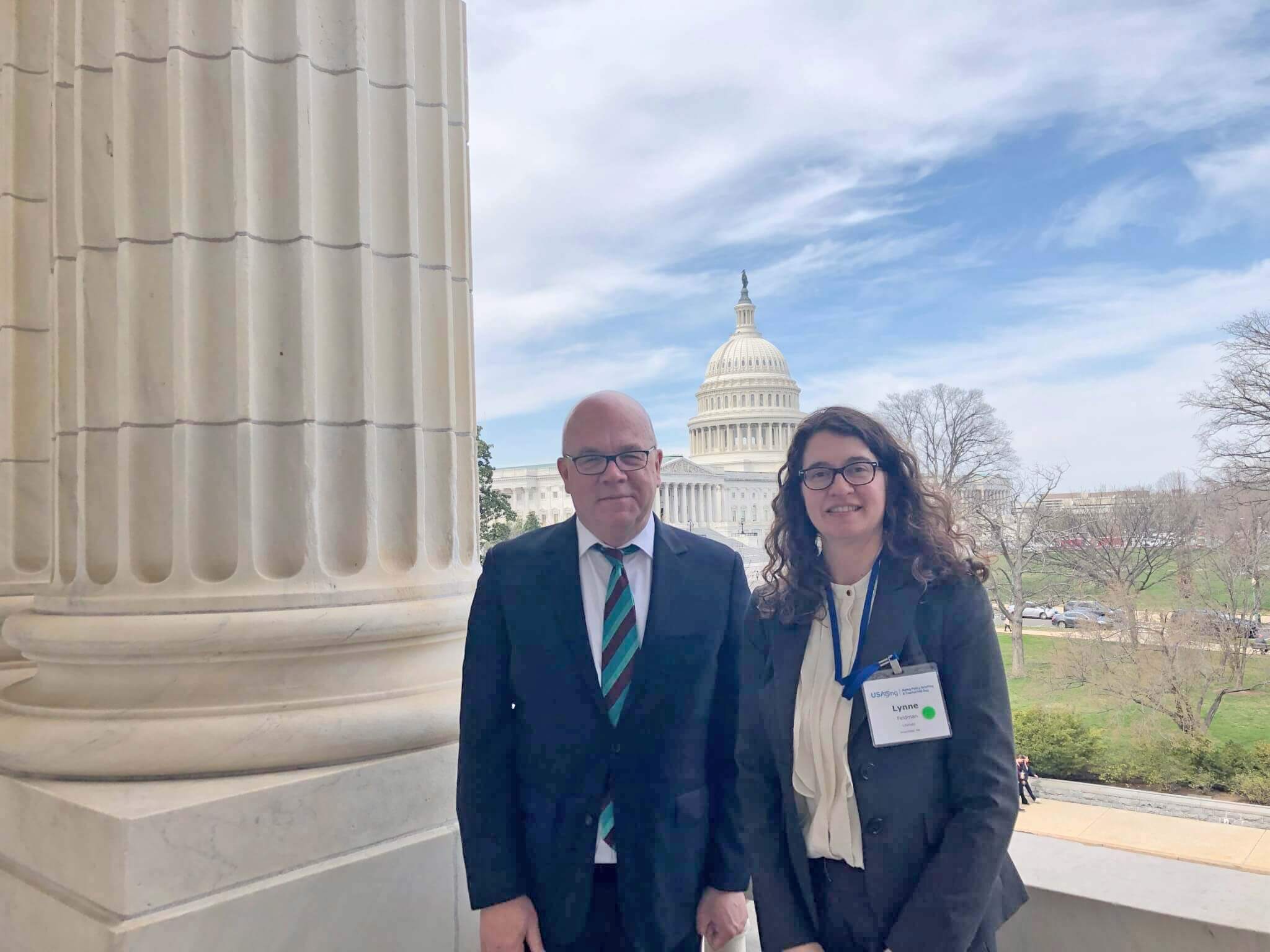In 1965, President Lyndon Johnson enacted the Older Americans Act (OAA) to cater to the evolving needs of aging citizens. This legislation established a network of Area Agencies on Aging (AAAs), totaling 614 nationwide, empowered to allocate resources based on localized assessments of elder and caregiver needs. In Franklin County and the North Quabbin region, LifePath serves as the designated AAA. (For a deeper dive into the OAA, refer to my earlier article.)
Fast forward to 2024, the OAA is due for reauthorization. Recently, I joined colleagues from various Massachusetts AAAs on a trip to Washington, D.C. to gain insights into federal initiatives supporting older adults and engage with lawmakers. USAging, the national association of AAAs, hosted the meetings.
In one presentation, Meena Seshamani, Deputy Administrator and Director, Center for Medicare, Centers for Medicare & Medicaid Services, US Dept. of Health and Human Services spoke about the need for government programs to support the whole individual. Dr. Seshamani talked about a time when she was a practicing head and neck surgeon treating a patient with a serious throat issue. The treatment for his diagnosis was a complex surgery involving grafts from his leg. In the months after the surgery, the patient did not heal well. Talking with the patient revealed that he was a very heavy drinker with no family support and little nutrition. Reflecting on this situation, she concluded that patients were more than just their diagnostic codes, and that medicine needed to work closely with community services for the best outcomes. As a result of this shift in thinking, starting January 1, Medicare will pay for care navigation, caregiver training, and home support in some situations.
In another presentation, Alison Barkoff, Performing the Duties of Acting Administrator and Assistant Secretary for Aging, US Administration for Community Living (ACL), also under Health and Human Services, discussed how the foundations of the OAA have served older adults in the greatest social and economic need, and that the major area where it can be improved is greater funding. She discussed several ACL areas of focus such as disaster preparedness and response, a direct care workforce strategy center, collaboration with the Federal Transportation Administration, and older adult homelessness.
Delving into the housing crisis, Jeff Olivet, Executive Director of the U.S. Interagency Council on Homelessness, and Linda Couch, Vice President of Housing and Aging Services Policy for LeadingAge, revealed a concerning 42% surge in homelessness among older adults, making them the fastest-growing demographic among the newly homeless. To put the housing crisis in perspective, they shared that 50 years ago, there was a surplus of 300,000 affordable housing units in the US, to now, with a deficit of at least 7 million units. They highlighted the pivotal role of prevention, crisis intervention, and housing support services, stressing the urgent need for expanded funding for rental assistance and eviction prevention programs.
Moreover, the housing panel raised awareness about the potential ramifications of the Johnson Vs. Grants Pass court case, which could impact cities’ ability to penalize individuals for street homelessness, potentially exacerbating the housing crisis and perpetuating cycles of poverty.
During our discussions with the staff from Senators Markey and Warren’s offices, as well as my meeting with Congressman Jim McGovern, I advocated for increased funding and flexibility, particularly for the Nutrition program. While there was evident support for the OAA and older adult services, prospects for substantial budgetary boosts in the 2025 fiscal year seemed limited.
We will continue to share opportunities to advocate for stronger funding for the OAA. Please take every opportunity to thank our MA lawmakers for their support older adults and let them know you fully support expanded funding for the OAA.



